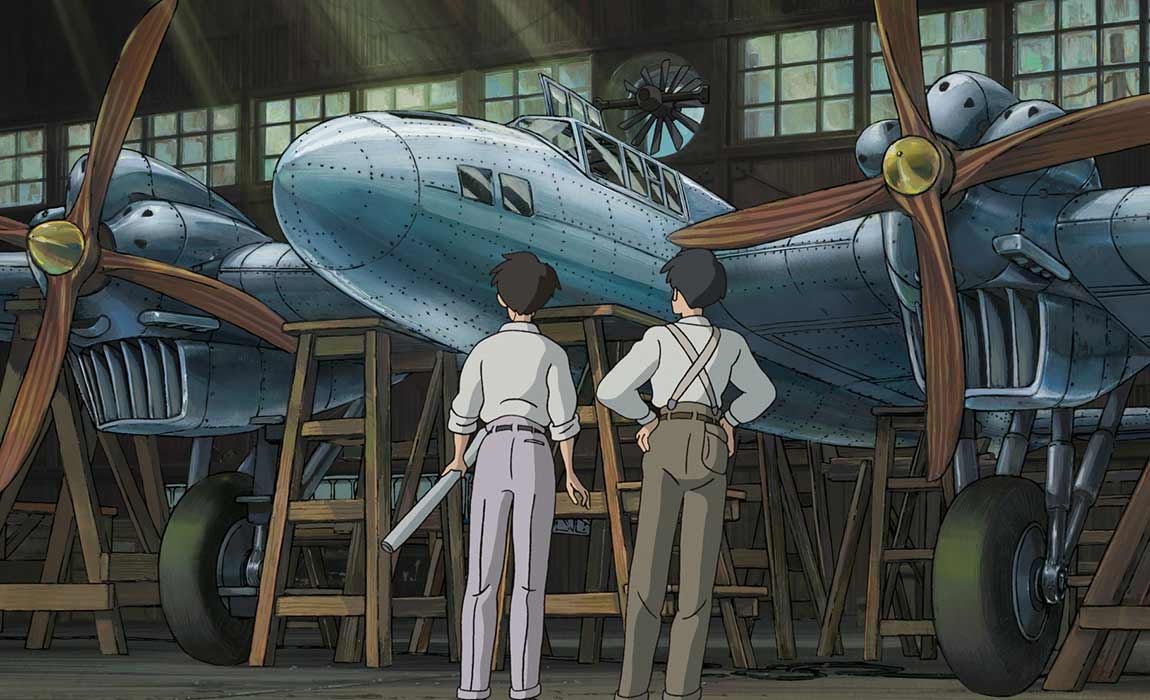The Wind Rises
Artistic vs militaristic endeavour vie in Hayao Miyazaki's supposed final film.
Overview
Jiro is an idealistic young man obsessed with the concept of flight. His poor eyesight means he can never be a pilot, so he becomes an engineer, designing planes that go as fast as is humanly possible. As Japan finds itself embroiled in the Second World War, Jiro falls in love with Naoko, and is torn between his desire to be with her, and his duty to his masters.
Japanese animation maestro Hayao Miyazaki — best known for classics such as My Neighbour Totoro, Spirited Away, Howl's Moving Castle and Ponyo — creates what may be his final film ever. (Miyazaki has announced his retirement many times in the past, and did so in the lead-up to this film. There are claims that he has backtracked this one as well.) If it is his last, it's a fitting coda. It's not difficult to see Miyazaki in Jiro: a single-minded focus with an artistic endeavour to the point of obsession.
Despite being based upon a true story, a significant amount of creative licence is taken. This is, counter-intuitively, a good thing. Often, the more reverential a biopic attempts to be, the less interesting a film it is. This is a film about artistic passion, and there are more important truths about life during wartime that are illuminated in a way that a simple recounting of events would not.
The film studiously avoids the cliches one would expect from this setup. It refuses to shy away from the questionable decisions made by Japan during wartime, but nor does it allow the idea of the country as the destined defeated to overwhelm what is ultimately a tale of human passion and endeavour.
It's hard to think of a more measured film about non-violent people in wartime. Much of the controversy surrounding the film has focused on the fact that the protagonist is developing planes that will eventually becomes those that attacked Pearl Harbour. But that is the exact position of the myopic Jiro, who at one point expresses frustration that the planes must carry weapons and bombs, for they will slow down his masterpieces. And that's the point of the film: that the purity of artistic endeavours are often destroyed by those more concerned with conflict and battle.
Madman Entertainment is releasing the film in both English and Japanese with English subtitles. You'll have to check to see which version your local cinema is playing, but if you have a choice, the Japanese language one is always preferable. There's something about the formality and manner of Japanese speech that doesn't translate well into English vocals, and even the most careful redubs often sound silly and awkward. Moments of sincerity can often sound funny, so exercise discretion. On the other hand, the English version has Werner Herzog as a German spy, so you can't really go wrong either way.
It's a bold, unapologetic film that is not always completely successful, but there is a confident vision at play, and that is always welcome.





